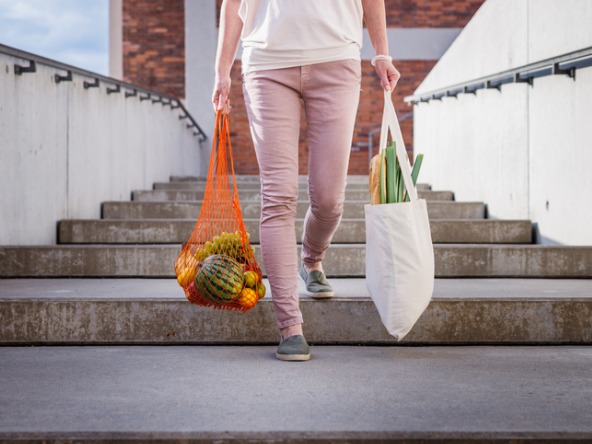Baby Boomers more likely to shop sustainably than Gen Z, finds Savanta study

Savanta’s Q3 Grocery Eye Report said that 51% of Gen Z consumers (roughly those born between 1997 and 2012 ) ranked sustainability as important to them compared with 39% of Baby Boomers (born approximately between 1946 and 1964 ).
However, Savanta said Baby Boomers were more likely to carry out sustainable shopping practices than Gen Z, with 75% using reusable bags compared to 39% of Gen Z.
Boomers were more likely to buy loose goods ( 44% versus 24% for Gen Z), buy produce in season ( 52% versus 25%), buy ‘wonky’ produce ( 55% versus 28%) and only buy products with recyclable packaging ( 40% versus 24%).
Minimising food waste through meal plans and freezing was also carried out by 58% of Baby Boomers compared with 29% of Gen Z.
Savanta also said that consumers increasingly think that taking action on sustainability is as much the responsibility of retailers ( 42%) and brands ( 41%) as it is on themselves as individuals ( 36%).
Gen Z are more likely than other generations to see it as the role of retailers ( 48%) and brands ( 58%) to educate them on sustainability.
Sustainability in retail is defined differently across generations, according to Savanta, with older people more likely to associate with plastic & recycling ( 67%) and food waste ( 73%) while younger people tend to link sustainability with human rights ( 66%).
However, sustainability was still seen a s a second-tier factor in consumer decision-making, with 41% claiming it is an important factor compared with 73% for price and 70% for quality.
Sustainability was ahead of other factors including production processes ( 39%), ethical brand ( 39%), locally sourced ( 37%), packaging ( 37%), being Fairtrade ( 35%), a product you can't get at other retailers ( 35%) and being organic ( 30%).
The Grocery Eye has been running since 2014, and surveys around 500 UK nationally representative shoppers each quarter, covering grocery shopping behaviour with a focus on healthy eating, plant-based food/meat reduction, sustainability and shopping missions and occasions.
Julie Vigne, senior director at Savanta, said: “Generation Z talk a good game about sustainable shopping, but our research suggests that in reality it is older people who are doing the heavy lifting.
“There are good reasons for this; aside from anything else, older consumers have more disposable income than younger generations. Baby Boomers can afford to be discerning, whereas Gen Z simply might not have the cash for often more expensive and sustainable alternatives.
“Younger people are more likely to need to see the personal benefit of sustainable behaviours, such as cost saving, for this reason.”

We hope you enjoyed this article.
Research Live is published by MRS.
The Market Research Society (MRS) exists to promote and protect the research sector, showcasing how research delivers impact for businesses and government.
Members of MRS enjoy many benefits including tailoured policy guidance, discounts on training and conferences, and access to member-only content.
For example, there's an archive of winning case studies from over a decade of MRS Awards.
Find out more about the benefits of joining MRS here.













0 Comments